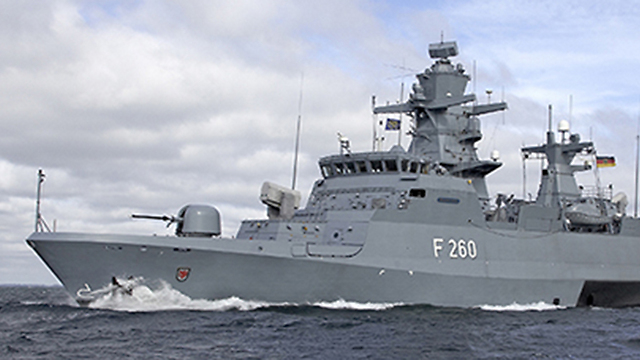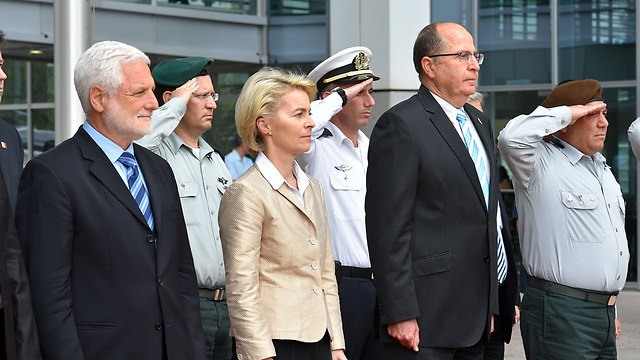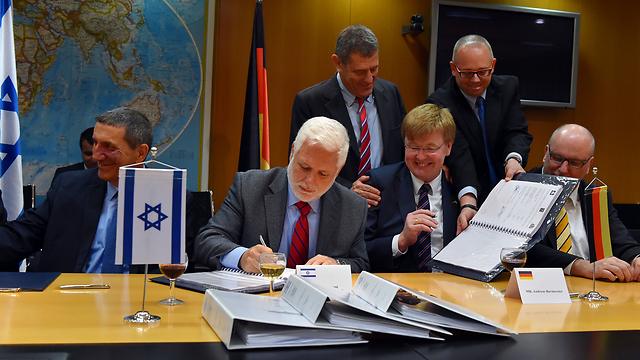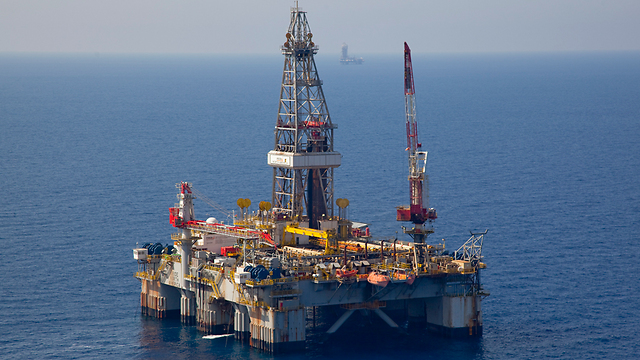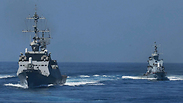
Defense Minister Moshe Ya'alon and his German counterpart Ursula von der Leyen signed a contract Monday under which Israel will purchase four ships from Germany to protect its offshore gas rigs.
The total cost of the vessels is estimated at about NIS 1.8 billion. The German government will finance a third of the deal, which was announced a day before Israel and Germany will mark 50 years of diplomatic relations.
It's been nearly two decades since Israel replenished its naval ships and military officials are hoping the German ships, advanced surface vessels, will become the future combat boat of the Israeli Navy.
It will take two to four years to complete the construction of the ships and bring them to Israel. The first ship will be delivered in five years, and the remaining three will be delivered within a year a part.
The ships purchased by Israel are larger and heavier than the Sa'ar 5-class corvettes currently used by the Navy. Each ship will weigh about 2,000 tons, and will be capable of carrying advanced combat systems that will enable operations from a distance of hundreds of kilometers from Israel's coasts and will include missile tracking systems.
Similar to the new German-made submarines that will arrive in Israel in September, the new ships will arrive "bare", and will be installed with a combat system developed by the defense industry in an process that will take a year.
In a press conference in Tel Aviv, the German defense minister said Israel "is our biggest friend in the Middle East. We have 70 projects with you and there is not a country in the world we have such expansive security relations with like we do with Israel, both bilaterally and in cooperation between the militaries."
Von der Leyen said Germany was using UNIFIL to present weapons from entering Lebanon, noting Berlin had Israel's security in mind.
On nuclear negotiations with Iran, which Germany is a party to, von der Leyen assured that the final-state agreement "will obviously benefit Israel's security."
"The corvettes ships purchased from Germany to protect the gas rigs are meant for protection missions only," Ya'alon stressed.
Alongside the major impact Israel's Leviathan and Tamar natural gas fields have on Israel's economy, they also created a security challenge for the Navy, whose troops secure the fields that have become strategic targets. The Navy's missile ships are forced to sail regularly to the gas rigs and during periods of tension in the north, a missile boat has to remain nearby.
In 2012, the Navy completed formulating details regarding a proposed plan for the protection of the rigs. The recommendations were transferred to the government, which confirmed them. A tender was then announced, coming to a completion today at a festive signing ceremony at the IDF headquarters at the Kirya base in Tel Aviv.
Dan Harel, the Defense Ministry's director-general, said the deal marked a "dramatic jump in the navy's defensive capabilities."
Israel already has four German-made submarines capable of launching nuclear warheads.
Associated Press contributed to this report.















